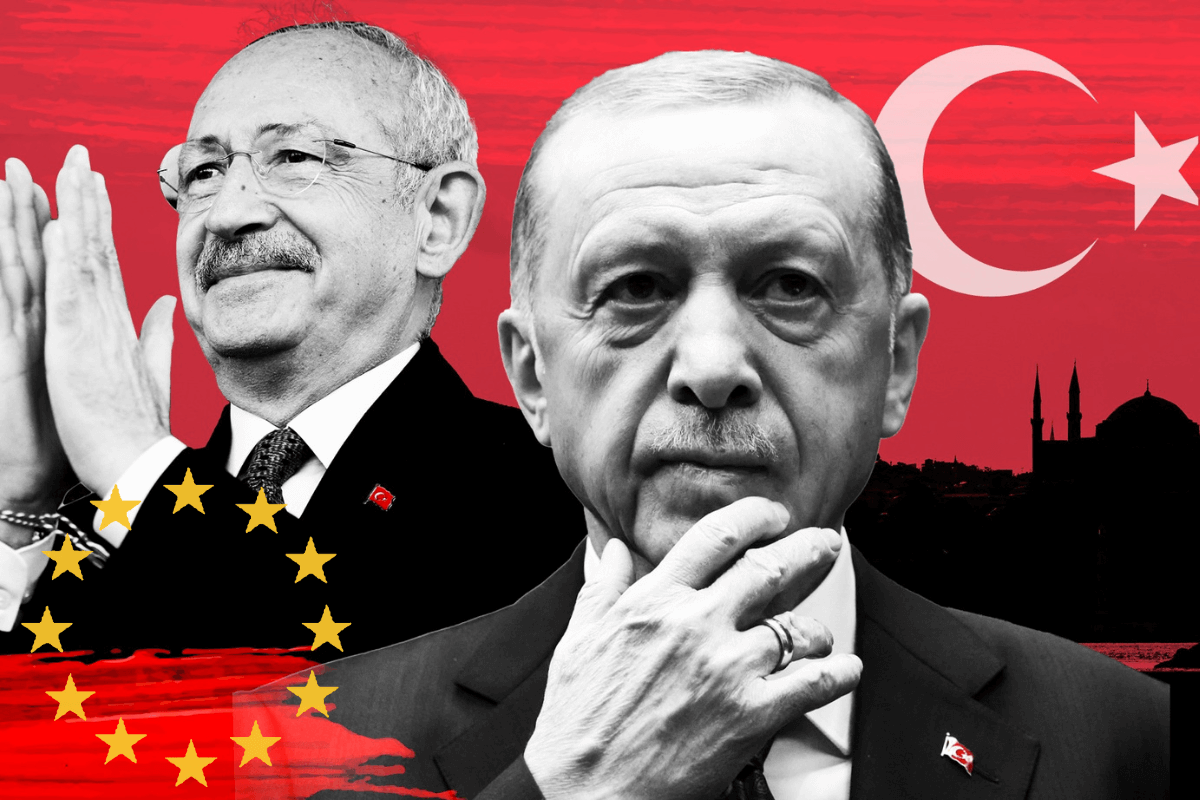The Future of Turkey, the Future of Europe
Jubaida Auhana Faruque | 20 May 2023
The national election in Turkey has entered its second phase, as no candidate emerged as the clear winner in the initial round. Despite a remarkable performance in the polls with 49.5% of the vote, President Erdogan fell short by a mere 0.5%+1, denying him the opportunity to govern for another five years. In contrast, Kılıçdaroğlu received 44.9% of the vote, significantly trailing behind the incumbent leader. Interestingly, pre-election surveys indicated that Kemal Kılıçdaroğlu was more widely accepted by the public this election season, but the final results have taken an unexpected turn. This demonstrates that the unpredictability of democracy can never be underestimated, and that the popularity of leaders can always fluctuate.
The current situation has introduced an intriguing twist, where the fate of Turkey's next government rests on the decision of Sinan Ogan. This development adds to the excitement surrounding the electoral process, shedding light on the internal dynamics of Turkey and creating an air of uncertainty for Europe. The evolving political landscape underscores the complex and multifaceted nature of Turkish politics, highlighting the importance of carefully monitoring the developments that lie ahead. Ultimately, the outcome of these events will shape Turkey's future trajectory and have broader implications for the region.
The polls exhibit that Erdogan has not lost his popularity completely even after 20 years of ruling, but it also shows that his acceptance among the population is reducing. The first phase has given rise to an apprehension that he might win the second round and form the government again with his Justice and Development Party (AKP) and his People’s Alliance. But this long period in power has not gone without vigorous criticism. From the coup directed by a fraction of the army in 2016 to the latest mismanagement in the situation of the earthquake in 2023, many in Turkey are dissatisfied with the situation and desire a change in the wind. But Erdogan has come up here based on a very particular ideology—political Islamism. Another five years of his presidency will probably continue this practice. Anyways, Erdogan has brought something new to his manifesto to increase his traction. Global economic repression is no news to Turkey, and so he has promised to slash inflation to single digits and boost economic growth. Over the last few years, the Turkish economy has gone through a major downhaul with soaring inflation, collapsing currency, a devaluation spiral, and failing economic policies, and Erdogan’s stiffness on these policies has significantly affected the country. As a result, the voters are mainly looking towards the changes in policies that contenders will bring in if given a chance. No matter which party comes to power, they have to make extensive and rigorous attempts to improve the economic condition of the country.
Nevertheless, the fate of Turkey is going to have a considerable impact on the fate of Europe. Being inclined towards Western ideology, there might be a possibility that Kılıçdaroğlu will try to enhance the Turk-EU relationship and divert the attention towards the debate over including Turkey in this regional bloc. The accession of Turkey to the union has been delayed since 2016 based on serious allegations of human rights violations in the country that violate EU policies. But Kılıçdaroğlu will try to make a change in the picture. He will try to upgrade the EU-Turkish Customs Union and seek a deal on visa liberalization. This phenomenon would come at the worst time when the debate over accessing Ukraine in the union is already on a hot plate. Though Kyiv has better stakes in the accession than Ankara, the leaders might reconsider the pros and cons of revisiting the discussion. Including Turkey in the group, might have both geopolitical as well as geo-economic stakes go at risk. Though Kılıçdaroğlu will be an easier figure to work with following his reform agenda, the discussion of enlarging the union up to Ankara might get an uncomfortable side-eye. Anyways, if Erdogan reinstates, this uneasy discussion might have the scope to avoid itself, and other issues might pose bigger problems. The usual pattern of amicable, transactional, and hostile policies will pertain, even might increase in intensity. But under his continued regime, democratic backsliding will remain to be a concern, and different circumstances like frozen talk on accession, 2016 migration pact upgradation, restriction on visa-free traveling, and 1995 EU-Turkey Customs Union update will remain at a standstill. All these might even degrade the current relationship. Tension with Greece and Cyprus will soar, leading to Erdogan’s wish to unleash refugees and migrants on Europe. It could also stoke military tensions, particularly if Turkey resumes hydrocarbon exploration in contested waters.
As a result, the stakes for Europe in this election might be a double-ended sword where the EU needs to wish for an outcome very deliberately. Besides, the election works as a mirror to reflect the desire of the Turkish people. The exit of Britain from the EU has worked completely based on the will of the citizen, and this time too, the citizen will let us know what they want. Economic distress is a very crucial issue in Turkey now, and either of the leaders will follow their definite path to reach a solution. That might either include adherence to a stronger alliance like the EU and liberalization of the regional economy, or it might see the continuation of the current policies. No matter who comes to power, the leaders have to embrace the democratic result liberally and consider it the wish of the Turkish people. Nonetheless, the stirring of regional policies regarding Turkey might need revision in both cases, and with the brewing conditions of the Ukraine crisis, maintaining all sides might get tricky for the region and the Union.
Views in this article are author’s own and do not necessarily reflect CGS policy.
